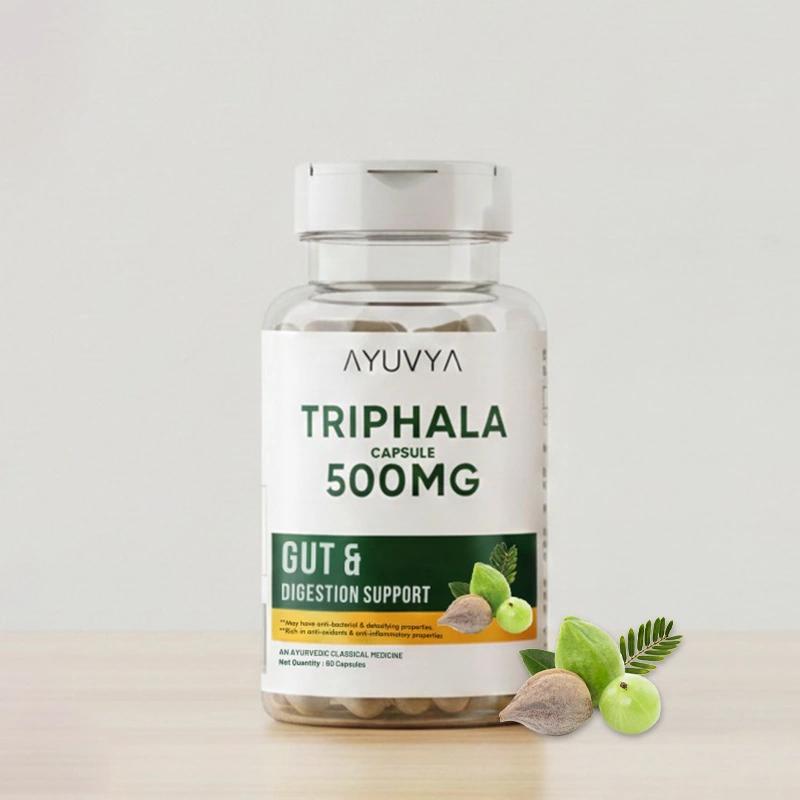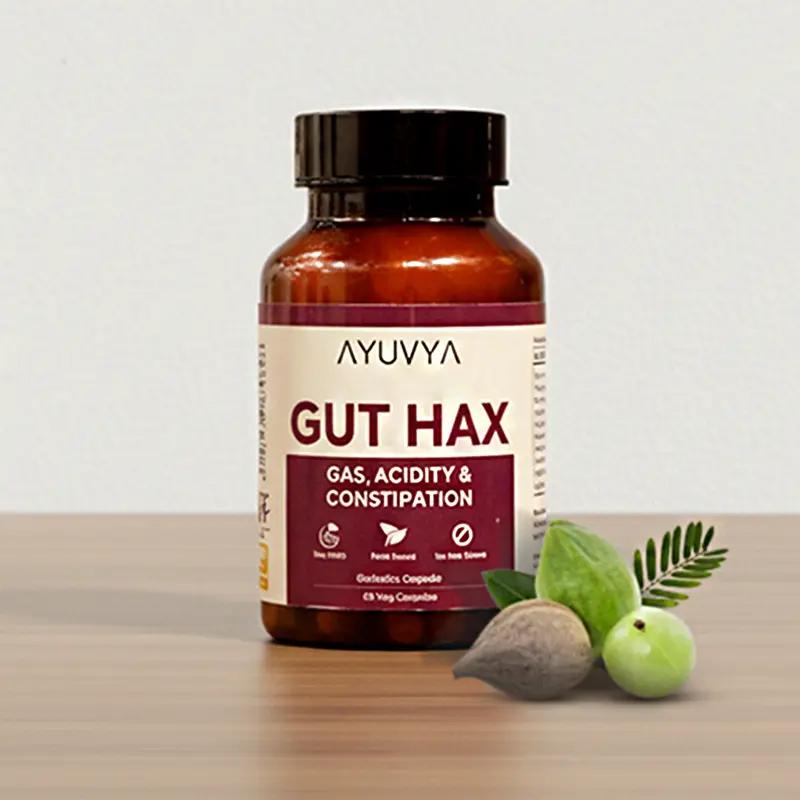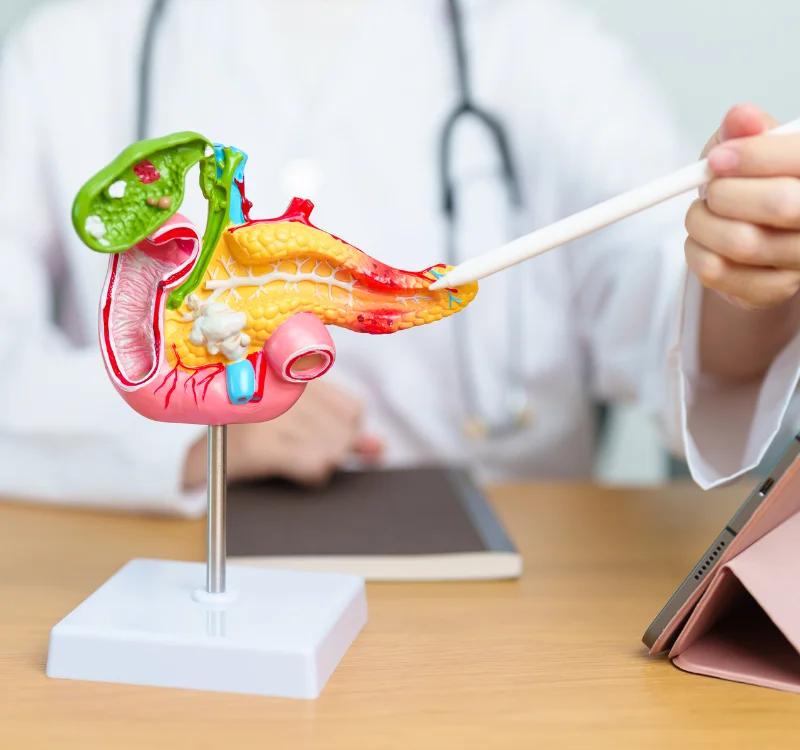Ayurvedic Treatment for Acid Reflux: What It Is and How to Manage It?
Oct 08, 2024

When stomach acid backs up into the oesophagus, it causes acid reflux, also called heartburn, a burning feeling in the chest. Anyone can experience this, but if it happens regularly, it could indicate that you have GERD or gastroesophageal reflux disease. While the occasional heartburn is harmless, untreated constant acid reflux can result in more serious health issues.
Table of Contents:
- What Causes Acid Reflux?
- Balancing Pitta: How Ayurveda Can Improve Acid Reflux?
- 4 Most Effective Ayurvedic Treatments for Acid Reflux.
- Foods to Skip for Smoother Digestion and Less Acid Reflux.
- Conclusion.
- FAQs.
Acid reflux can be brought on by several things, including food triggers and lifestyle choices. However, there are Ayurvedic and natural medicines available that help avoid or manage discomfort. Gaining knowledge about the causes of acid reflux and effective treatment options might enhance your general well-being. This article will discuss the typical causes, ayurvedic treatment for acid reflux, things to stay away from, and ways to reduce acid reflux.
What Causes Acid Reflux?
1. Unhealthy eating habits: Large meals or eating too close to bedtime can make acid reflux more likely. Frequent consumption of hot, oily, or acidic foods can weaken the lower esophageal sphincter, which allows stomach acid to more easily reflux back into the esophagus and cause heartburn.
2. Smoking: Cigarette Use The lower esophageal sphincter (LES), which keeps stomach acid from rising into the esophagus, is reduced by smoking. Furthermore, smoking increases stomach acid production, which over time can worsen symptoms of acid reflux.
3. Medications: Aspirin, ibuprofen, and blood pressure medications are examples of drugs that might irritate the esophagus or relax the LES, which affects the passage of stomach acid into the esophagus. This can worsen pre-existing symptoms or result in regular acid reflux.
4. Lack of Sleep: Sleeping just after a meal or with poor quality sleep could upset acid reflux. Especially if you sleep on your back, stomach acid can more easily travel up into the esophagus when you're lying down, which might cause discomfort.
5. Stress: Although acid reflux is not directly caused by stress, it may worsen the symptoms. Excessive stress can cause the formation of more stomach acid, and stressed-out individuals are more willing to eat poorly, which may cause acid reflux.
Balancing Pitta: How Ayurveda Can Improve Acid Reflux?
According to Ayurveda, an imbalance in the Pitta dosha, which controls body temperature and digestion, is frequently linked to acid reflux. Excess heat in the stomach produced through an increased pita might result in reflux and hyperacidity. Poor digestion is also caused by an imbalance in agni, the digestive fire. Eating hot or acidic meals, inconsistent eating patterns, stress, and an excessively fast-paced lifestyle are common factors that increase Pitta. Ayurveda places a high value on bringing Pitta into balance through nutrition, lifestyle, and herbal therapies.
Ayurvedic treatment for acid reflux suggests avoiding spicy, sour, or salty foods to balance the Pitta dosha and lessen acid reflux. Rather, concentrate on eating alkaline, cooling foods like leafy greens, cucumbers, and melons. Simple lifestyle adjustments like eating mindfully and at regular intervals can also help balance Pitta and reduce acid reflux symptoms. Best Ayurvedic medicine for acid reflux frequently includes herbs like licorice, fennel, and amla to lower acidity and soothe the digestive tract.
4 Most Effective Ayurvedic Treatments for Acid Reflux
The goal of ayurvedic treatment for acid reflux is to normalize the digestive tract by lowering Pitta dosha. Here are a few Ayurvedic methods to control acid reflux:
1. Herbs: Herbal therapies that help calm and reduce inflammation in the stomach lining include licorice root, amla (Indian gooseberry), and fennel.
2. Dietary Adjustments: You can reduce acid reflux by increasing your intake of cooling foods like melons, cucumbers, and sweet fruits.
3. Lifestyle Changes: You can help control digestion and reduce acid reflux by eating at regular intervals, eating mindfully, and avoiding heavy or oily foods.
4. Hydration: To help wash out too much acid from the digestive system, sip lukewarm water or herbal teas like ginger or chamomile.
5. Yoga: It helps in improving digestion, reducing stress, and promoting relaxation. Specific poses like Vajrasana and Bhujangasana can strengthen the digestive system, reduce acid buildup, and balance stomach acid naturally, supporting Ayurvedic treatment.
Foods to Skip for Smoother Digestion and Less Acid Reflux
1. Caffeinated beverages: Due to their ability to relax the LES and allow stomach acid to flow into the esophagus, caffeinated beverages such as coffee and tea can cause acid reflux. Caffeine also increases stomach acid production, which can worsen reflux symptoms.
2. Carbonated Drinks: Carbonated beverages, such as soda and sparkling water, have the potential to dilate the stomach, putting more strain on the lower end of the LES and allowing stomach acid to move back into the esophagus, resulting in heartburn.
3. Citrus fruits: Due to their high acidity, oranges, lemons, and other citrus fruits can irritate the lining of the esophagus, making symptoms of acid reflux worse. It is advisable to restrict your intake if you frequently have heartburn.
4. Alcohol: Booze Acid reflux can result from both the relaxing of the LES and higher production of stomach acid caused by alcohol. Large alcohol consumption or drinking on an empty stomach may worsen symptoms in general.
5. Chocolate: Caffeine and theobromine, two substances found in chocolate, both relax the LES. This increases the passage of stomach acid into the esophagus, leading to pain and acid reflux.
6. Fried and Fatty foods: Foods heavy in fat slow down digestion and increase the risk of acid reflux by increasing pressure on the LES. To avoid acid reflux, stay away from fried foods, fatty meats, and creamy dishes.
7. Tomatoes: Tomatoes and tomato-based products are highly acidic and can irritate the esophagus, triggering acid reflux. Avoid tomato sauces, ketchup, and fresh tomatoes if you frequently experience heartburn.
8. Peppermint: While peppermint can soothe digestion, it also relaxes the LES, allowing stomach acid to rise into the esophagus. Avoid peppermint tea, mints, or any products containing peppermint if you have acid reflux.
Conclusion
Ayurvedic treatment for acid reflux provides effective natural remedies to help manage symptoms. By focusing on improving digestion and balancing the body, ayurvedic treatment for acid reflux can lead to lasting relief. Understanding the connection between Ayurveda and acid reflux is important for making better choices about diet and lifestyle.
Simple changes, like avoiding spicy foods and practicing yoga, can make a big difference. With guidance from an Ayurvedic practitioner, you can find the right Ayurvedic treatment for acid reflux for your needs. Overall, knowing about Ayurveda and acid reflux can help you feel better and enjoy life more fully. Embracing these natural solutions leads to improved digestive health and well-being.
Frequently Asked Questions
GERD in ayurveda is seen as an imbalance of Pitta dosha, leading to excessive acidity and digestive issues. Treatment focuses on strengthening digestive fire (Agni) and using herbs to restore balance and soothe the gastrointestinal tract.
Treatments include consuming soothing herbs, avoiding spicy foods, and ensuring proper meal timing to enhance digestion. Making such changes in your daily life helps in balancing Pitta dosha that results in the betterment of your health.
Incorporate specific herbs, follow a balanced diet, and practice yoga to strengthen digestion and reduce acidity.
Acid reflux treatment in Ayurveda can manage and improve symptoms, but it's best viewed as part of a holistic approach rather than a guaranteed cure.
Ayurvedic Treatments for Acid reflux include herbal remedies, dietary changes, and lifestyle modifications to enhance digestion and reduce symptoms.
Ayurveda GERD treatment refers to balancing digestive fire (Agni) and using herbs to reduce acidity and improve digestion.
Ayurvedic medicines for acid reflux, include Amla, Triphala, and various herbal formulations, according to individual needs.















